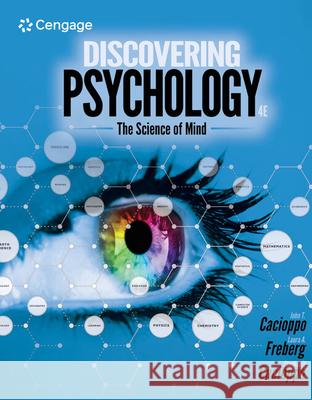Discovering Psychology: The Science of Mind » książka
topmenu
Discovering Psychology: The Science of Mind
ISBN-13: 9780357363232 / Angielski / Miękka / 2021 / 816 str.
Kategorie:
Kategorie BISAC:
Wydawca:
Cengage Learning, Inc
Język:
Angielski
ISBN-13:
9780357363232
Rok wydania:
2021
Ilość stron:
816
Waga:
1.80 kg
Wymiary:
27.43 x 22.61 x 3.3
Oprawa:
Miękka
Wolumenów:
01
Dodatkowe informacje:
Bibliografia
Wydanie ilustrowane
Wydanie ilustrowane











